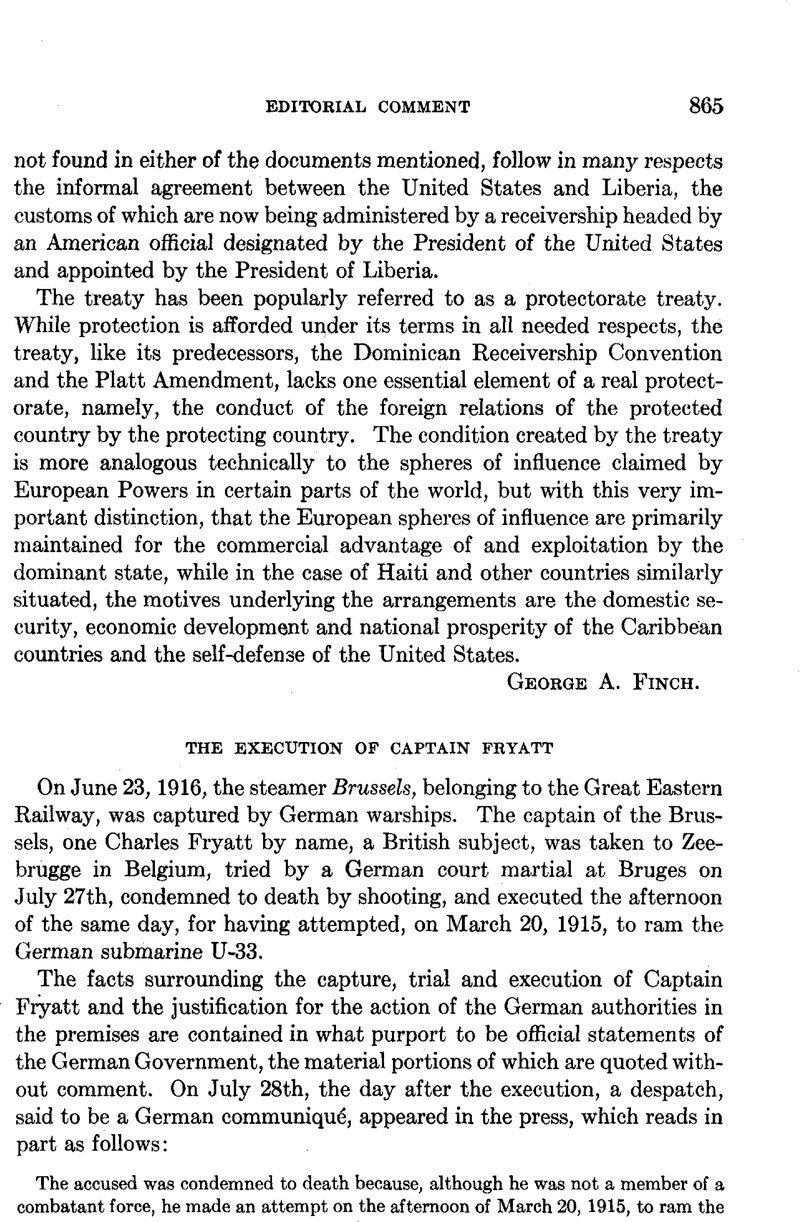Published online by Cambridge University Press: 04 May 2017

1 New York Times Current History, September, 1916, p. 1017.
2 Ibid., p. 1019.
3 Resolutions of the Institute of International Law, Carnegie Endowment, 1916, p. 177.
4 Annuaire de l’Institut de Droit International, 1913, Vol. 26, pp. 516–521, 607–609.
5 Handbuch des Völkerrechts, Vol. IV, pts. 1 and 2 (Dos Seekriegsrecht), pp. 284–285.
6 Zeilschrift für Völkerrecht, 1914 (Vol. VIII), p. 391.
7 See the decision of Chief Justice Marshall in the case of The Antelope, (10 Wheaton, 66, 122), decided in 1825, in which he held: “No principle of general law is more universally acknowledged, than the perfect equality of nations. Russia and Geneva have equal rights. It results from this equality, that no one can rightfully impose a rule on another. Each legislates for itself, but its legislation can operate on itself alone. A right, then, which is vested in all, by the consent of all, can be divested only by consent; and this [slave] trade, in which all have participated, must remain lawful to those who can not be induced to relinquish it. As no nation can prescribe a rule for others, none can make a law of nations; and this traffic remains lawful to those whose governments have not forbidden it.”
8 The Hague Conventions and Declarations of 1899 and 1907, Carnegie Endowment, 1915, p. 146.
9 Huberich & King’s edition of the German Prize Code as in force July 1, 1915, page 75.